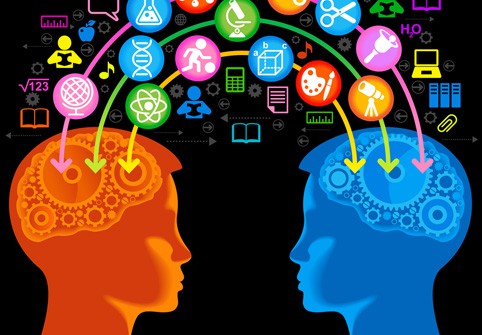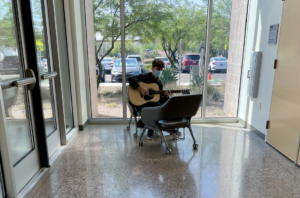Digital Learning: The Future of Schooling?

The world around us has been transformed by technology. We download digital music onto tiny iPod shuffles instead of spinning large vinyl albums. We watch videos on YouTube instead of television; choosing when we want to see them instead of relying on timing dictated by TV schedules. If we travel to a new city, we find restaurants, hotels, and our way around by letting our smart phones tell us where we are, and asking Yelp or TripAdvisor to tell us what other people have found to be the best options nearby. Our travel was likely planned, bought, and paid for online, with travel alerts coming to us via email or text message. While we’re traveling, we’re likely to post pictures that friends and family will see, share, and add to Facebook or another social media site.
Just about everything is different than it was a decade or two ago—except for one institution, which looks largely the same as it has for 100 years: Public education.
Recently I read the words of Randy Bass of Georgetown University: “Our understanding of learning has expanded at a rate that has far outpaced our conceptions of teaching.” It has certainly outpaced our notion of schooling as well. There is a growing appreciation for the integration of learning opportunities with one’s sense of community and personal life experience. Everything is powered by participation in this world now characterized by vibrant customized and collaborative media, smart networks and actors, and the potential to create anything from the ground up. How can these same forces push us to become more active in creating a future that meets the needs of all learners?
Ohio has been a path-breaker when it comes to availability of full-time e-school options that leverage technology in learning. In fact, if all 33,000 children currently enrolled in Ohio e-schools were in one school district it would make up the state’s third largest district just after Columbus and Cleveland. Despite such numbers, time has passed and Ohio has yet to harness the potential of digital learning for all students. Innovation cannot be something Ohio “did,” it has to be what Ohio “does” and who Ohio “is.”
America’s elite universities are taking digital learning seriously. Harvard and MIT just committed 60 million to offer free online courses from both their universities. The Stanford School of Medicine just “flipped” medical education using technology. In our 2020 Forecast, we have long visualized such forces of change that are challenging us to realize a world of learning that puts learners at the center, leverages technologies and human capital in new ways, and incorporates new structures.
Yet most students in our schools still walk into a classroom with one teacher lecturing to twenty-five (or more) students, without the level of technology, personalization, or individual control that we find in almost all other fields today. There are exceptions, of course—schools and educators moving rapidly into the future—but they remain the exceptions to the rule.
How do we change the situation so that the exceptions become the norm? While the rest of the world begins to leverage anytime, anywhere learning, how do we keep Ohio students from getting locked out of the best that the world has to offer?
We believe one important opportunity lies with the Ohio General Assembly, which is now considering some policy changes that would help innovative educators in the state. Currently Ohio S.B. 316 contains a provision to allow any school to operate as a blended school, and it requires the state to re-think its traditional operating rules in light of this new paradigm— so that schooling might begin to catch up with new notions of learning. Ohio stands at an important crossroads, and 2012 remains a pivotal year as to whether or not Ohio will move toward the future, or remain standing still.
Local, state and national experts are gathering this week in Columbus, Ohio to examine digital learning at a national summit entitled, Digital Learning: The Future of Schooling? The event is co-hosted by KnowledgeWorks, the Thomas B. Fordham Institute, and the Nord Family Foundation.
Dr. Lisa Duty @lisaduty1 is director of external affairs for KnowledgeWorks and leads digital learning initiatives. KnowledgeWorks is a social enterprise that incubates and scales up innovative schools and education initiatives.


Kyle
Technological change is now accelerating faster than the abilities of rigid, top-down institutions like public education to keep up. This makes it imperative for people not to rely merely on schools for their education, but to embrace lifelong learning because if we don't keep continuously unlearning obsolete ideas and relearning new, better ones to replace them, we'll become obsolete too.